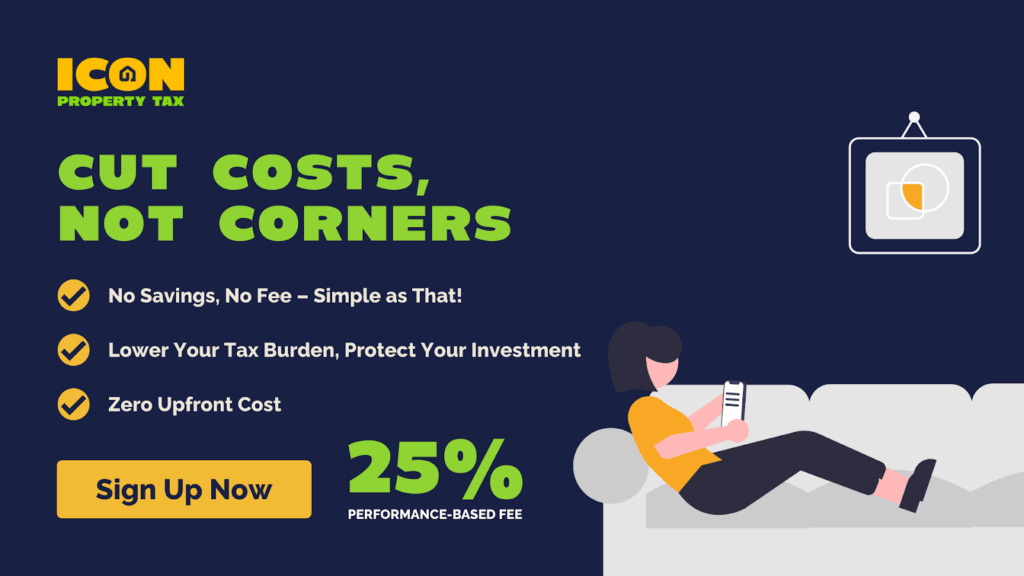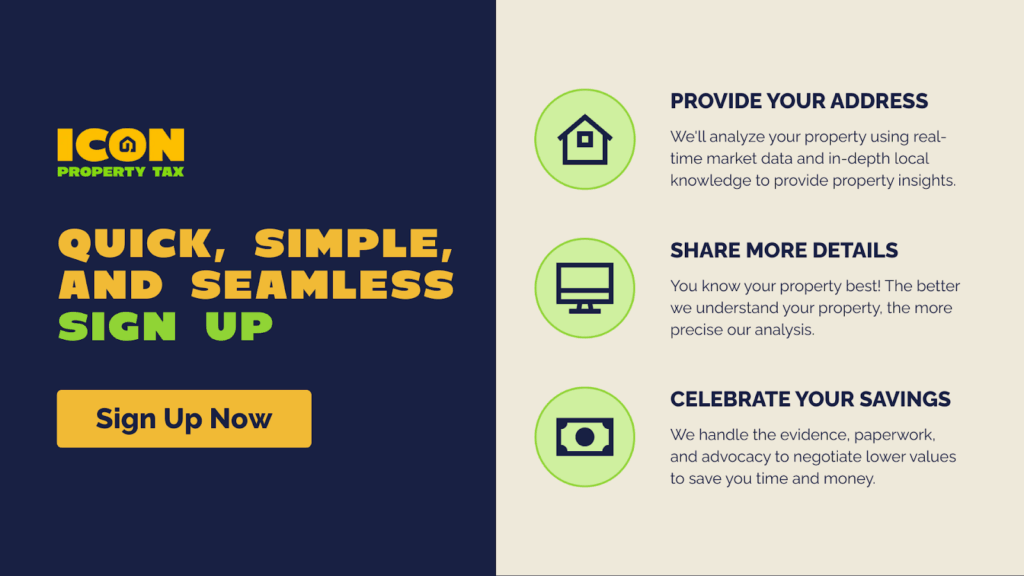Illinois Property Tax Rate Overview: How Taxes Are Calculated And Why They Vary
August 13, 2025
Key Takeaways:
- Rate Variation: Property tax rates in Illinois differ drastically by location due to local levies, service needs, and assessment practices.
- Calculation Method: Property taxes are calculated using assessed value, state equalization, and local tax rates, not just market value.
- Relief Options: Homeowners have legal ways to reduce tax burdens, including exemptions and formal appeals backed by accurate data.
Illinois is known for having some of the highest property tax rates in the country, and if you own property here, you’ve likely felt the pressure. But many don’t realize that property tax bills aren’t just the result of market value. They’re the outcome of layered systems involving assessments, equalization, taxing districts, and shifting local budgets. A lack of transparency in this process often leaves homeowners and investors questioning whether their bill is fair and what they can do about it.
At Icon, we’ve handled over 250,000 successful property tax appeals and recovered millions in savings for Illinois property owners without charging a dime unless we deliver results. With decades of experience navigating complex tax codes, local ordinances, and assessment systems, we’re not just familiar with Illinois property taxes; we understand how to beat them.
In this piece, we’ll break down how the Illinois property tax rate is calculated, explain why it varies across communities, and show you how to take control of your tax burden, with or without an appeal.
What Is the Illinois Property Tax Rate?
Illinois consistently ranks among the states with the highest property tax rates in the country. The average effective Illinois property tax rate is around 2.1%, but this figure varies significantly depending on the county and the local taxing authorities in your area.
Unlike states that rely heavily on income or sales tax, Illinois leans more on property taxes to fund local services, especially public schools, police and fire departments, libraries, and local infrastructure. Because of this, property taxes play a central role in community budgeting and directly impact homeowners, landlords, and commercial property owners alike.
Understanding how this rate is determined is essential for managing property costs and recognizing when you might be overpaying.
Want to see if you’re overpaying? Lower Your Tax Burden, Protect Your Investment with our No-savings, No-fee Pledge.

How Property Taxes Are Calculated In Illinois
Calculating your property tax in Illinois involves three key components: assessed value, the equalization factor (or multiplier), and the local tax rate. Each part plays a role in determining what you’ll owe each year.
Assessed Value
Local township assessors evaluate properties to determine their fair market value. In Illinois, most residential properties are assessed at 33.33% of market value. For example, if your home is worth $300,000, your assessed value would be roughly $100,000.
Equalization Factor
To ensure uniform property taxation across counties, the Illinois Department of Revenue applies an equalization factor (sometimes called the “state multiplier”). This adjusts assessed values so they more accurately align with market values.
Local Tax Rate
Each taxing body—like school districts, municipalities, and park districts – sets a tax levy based on budget needs. These levies are combined to form your total tax rate. The more taxing bodies in your area, the higher your overall rate could be.
Protect your investment with zero upfront cost. Let Icon help you make sense of your assessment and explore savings opportunities.
Why Property Tax Rates Vary Across Illinois
Property tax rates in Illinois aren’t uniform, and that’s by design. They differ widely across counties, municipalities, and neighborhoods due to several factors driving local budget needs and taxing authority structures.
Local Government Budgets
Each community sets its budget based on what it needs to fund schools, emergency services, roads, and more. If a school district relies heavily on property taxes for revenue, residents in that area will likely face higher rates.
Number Of Taxing Bodies
Illinois has one of the highest local taxing bodies in the U.S. Your tax bill may include levies from a city, township, school district, community college, library, and others. The more taxing entities involved, the more your bill can grow.
Real Estate Market Conditions
In areas where property values are rising rapidly, tax rates might be lower, but the actual tax bill could still be high due to increased assessed value. Conversely, rates often increase in areas with declining property values to maintain revenue levels.
State Funding Formulas
Disparities in how state funds are allocated can lead some districts to rely more heavily on local property taxes than others, adding another layer of variation across the state.
If your rate feels too high, stand your ground with experts who can challenge unfair assessments.

The Role Of Assessments And Equalization
At the heart of every Illinois property tax bill is the property assessment, and understanding how assessments and equalization work is key to knowing whether you’re paying more than you should.
Property Assessments
Local assessors determine the value of your property based on its market value, property characteristics, and recent sales of comparable properties. In most Illinois counties, assessments occur every four years, though Cook County reassesses properties every three years.
This assessed value is just the starting point.
Equalization (State Multiplier)
The Illinois Department of Revenue applies a state equalization factor to ensure fairness across counties with different assessment practices. This multiplier brings assessments closer to 33.33% of market value statewide. For example, if your county tends to under-assess homes, the equalization factor raises the values accordingly to align with market norms.
Assessment Appeals
Even though assessments are supposed to reflect fair market value, errors and inconsistencies are common. That’s why homeowners and commercial property owners have the right to appeal their assessment, a crucial step if you believe your valuation is inflated.
Are you unsure if your assessment is accurate? Let Icon review it at no upfront cost. You only pay if we reduce your bill.
How To Challenge A Property Tax Assessment
If you believe your property is over-assessed in Illinois, you have the right to challenge it, which could lead to real savings. But timing, evidence, and process all matter.
Step 1: Review Your Assessment Notice
Your local assessor sends an annual notice detailing your property’s assessed value. Review this carefully, and compare the valuation to similar properties in your area. Pay attention to square footage, age, lot size, and features.
Step 2: Gather Comparable Property Data
You’ll need comparable sales data (or “comps”) to build a case. These are similar properties in your neighborhood that have recently sold for less than your assessed value suggests. This is where many appeals succeed or fail.
Step 3: File A Formal Appeal
Each county has specific deadlines and filing procedures. You’ll need to file with your local Board of Review, proving your property is assessed too high. The appeal process may include written submissions, hearings, or both.
Step 4: Work With A Property Tax Consultant
Many property owners find it overwhelming to navigate this process alone. That’s where property tax consultants like Icon come in; we handle everything from data analysis to filing and follow-up.
No-savings, No-fee Pledge: Stand your ground with support that doesn’t cost a dime unless you win.
Work with Experts to Lower Your Illinois Property Tax Rate
Navigating Illinois property taxes isn’t just time-consuming; it’s technical, detailed, and varies significantly by county. If you’re unfamiliar with assessment formulas, equalization factors, and local tax codes, you could leave money on the table.
Partnering with property tax experts like Icon can make all the difference.
Why Choose Icon?
We don’t just review numbers; we challenge over-assessments, back our work with data, and handle the process from start to finish. Our team understands the nuances of each Illinois county and has a proven track record of helping homeowners and investors save.
- No hidden fees
- No upfront costs
- No savings, no fee, you only pay if we reduce your taxes
Whether you’re a first-time homeowner or managing a portfolio of properties, accurate assessments are critical to your bottom line. With Icon, you get a partner that fights for fairness and ensures your property tax bill reflects reality, not guesswork.
Protect your investment and only pay when you save. Let Icon do the heavy lifting and get the savings you deserve.

Final Thoughts
Illinois property taxes can feel overwhelming, especially when rates vary widely and the calculation process isn’t always transparent. However, understanding how the Illinois property tax rate is determined, what factors drive increases, and how assessments work gives you the power to take control.
Whether you’re questioning your latest assessment or trying to stay informed, remember this: you don’t have to navigate it alone.
At Icon, we believe in fairness, transparency, and real results. And with our No-savings, No-fee Pledge, you get expert support without risk.
Ready to challenge your assessment? Start here and let us help you protect what’s yours, for less.
Read Also:
- DuPage County Property Tax Overview: Rates, Assessments, and Billing Cycles
- Kane County Property Tax Overview: Rates, Assessments, And Billing Cycles
- Will County Property Tax Overview: Rates, Assessments, And Billing Cycles
Frequently Asked Questions About Illinois Property Tax Rate Overview
How often do property tax rates change in Illinois?
Tax rates are reviewed and can change annually based on local government budgets, even if your property’s value remains unchanged.
Does Illinois offer property tax relief for low-income residents?
Yes, some counties offer Circuit Breaker or senior freeze programs to assist low-income homeowners with property tax relief.
Can new construction impact property tax rates in my area?
Yes. New developments can shift the tax burden, spreading it out (lowering rates) or increasing service demand (raising rates).
Do commercial properties have different tax rates from residential ones in Illinois?
They often do. Many counties assess commercial properties at higher rates or classification levels than residential properties.
What happens if I don’t pay my property taxes in Illinois?
Unpaid property taxes may result in late fees, tax liens, or even the property’s eventual sale at a tax auction.
Are Illinois property tax rates capped or limited by law?
While there’s no statewide cap, the Property Tax Extension Limitation Law (PTELL) limits the annual increase of certain tax levies.
How do Tax Increment Financing (TIF) districts affect my property taxes?
In a TIF district, part of your tax dollars go toward redevelopment projects, potentially diverting funds from schools and other services.
Can reassessments lead to retroactive property tax bills?
Generally, no. Reassessments affect future tax years, but errors found in past assessments could trigger adjustments or refunds.
Do renters pay property taxes in Illinois?
Indirectly, yes. Landlords factor property taxes into rent prices, so increases can impact rental rates over time.
How does annexation by a city affect property taxes?
When a property is annexed into a city, it may become subject to additional taxing bodies, often increasing the total property tax bill.

